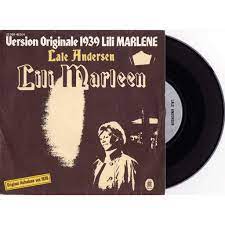Eighty years ago the desert war finds its soundtrack
The Germans continued their seemingly unstoppable advance into the Soviet Union. The important naval base of Nikolaev on the Black Sea fell without a battle. The dockyard installations were mainly destroyed but large stocks of material were captured some partly completed warships escaped to ports on the eastern, Georgian seaboard of the Black Sea, but facilities for completeing them and maintaining other ships were limited and primitive. The Germans were to enjoy the advantage at sea for some months to come.
Britain and the US pledged full economic assistance to the Soviet Union, which was treated as a full ally in the struggle against Nazi Germany. President Roosevelt convinced himself that the Soviet regime was essentially benign and deserving of every support possible. Stalin graciously accepted what the western allies offered him unconditionally. A three-power conference in Moscow to decide on ways and means was agreed on.
The German troops in North Africa rather depended on Soldatensender Belgrad (Troops Station Belgrade), the nearest powerful transmitter, for their entertainment. One evening it played a song recorded by a barely known artist in 1939 which had enjoyed no great success. "Lili Marleen" by Lale Andersen was soon immensely popular, not only with the men of the Afrika Korps but their British opponents in the Eighth Army. It became the sign-off tune for the station at 10pm every night. Vera Lynn recorded an English version with practically the same lyrics. Neither version was at all martial or patriotic, just a girl's wistful memories of saying good-bye to her soldier boyfriend at the gate to his barracks now that he is far away at the front. The German propaganda authorities castigated the song as "morbid and depressive" and "damaging to martial power" but it proved too popular, becoming the first song to sell more than one million discs in Germany.



Comments
Post a Comment